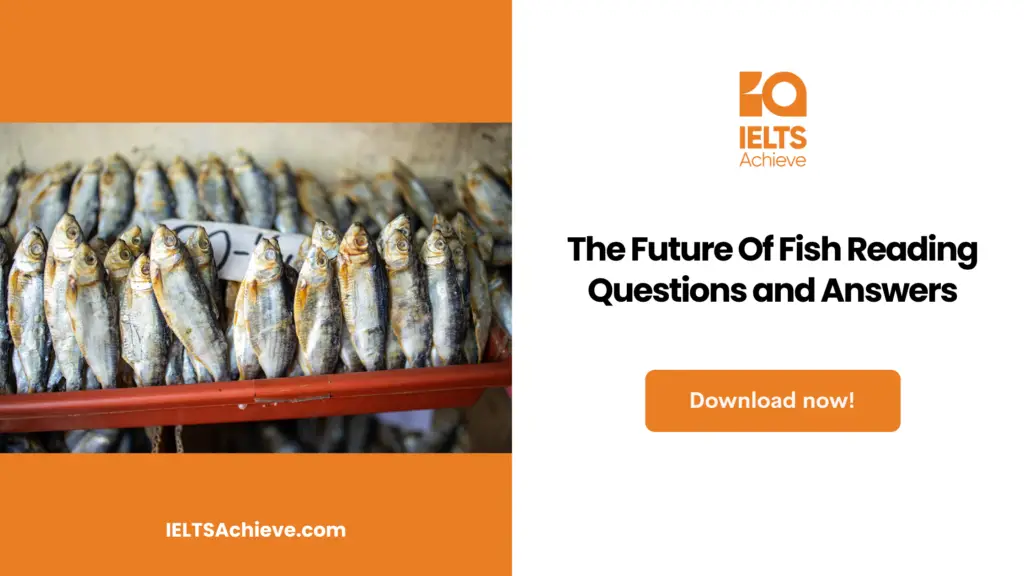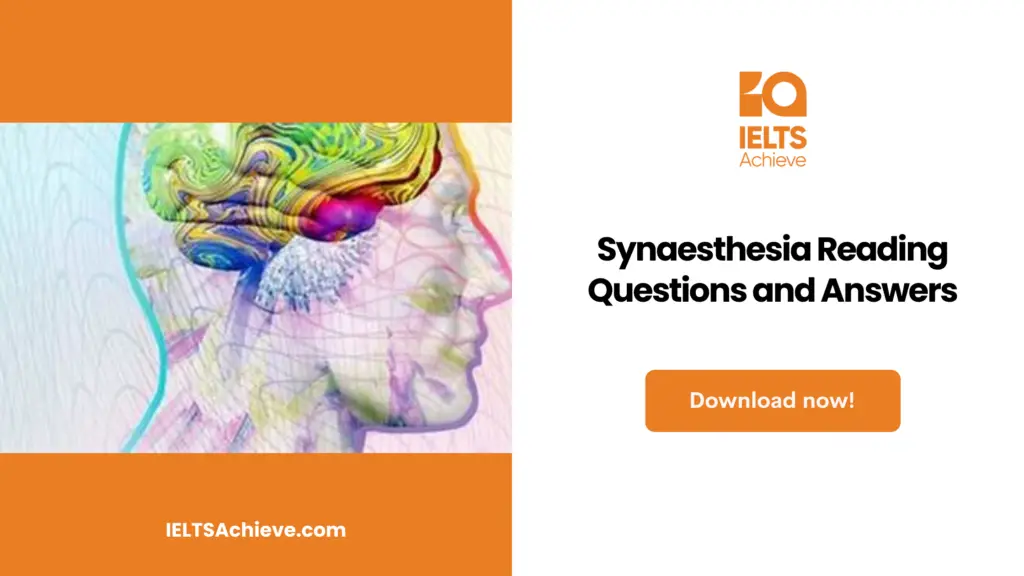The Blog post contains the following IELTS Reading Questions:
- IELTS Reading Yes/NO/Not Given
- IELTS Reading Multiple Choice Questions
- IELTS Reading Matching Headings
Stay informed and prepared for success – Explore our comprehensive Reading Test Info page to get valuable insights, exam format details, and expert tips for mastering the IELTS Reading section.
IELTS Reading passage – A not lier intelligence?

A not lier intelligence
Emotional Intelligence as a theory was first brought to public attention by the book Emotional Intelligence, Why It Can Matter More Than IQ by Daniel Coleman, but the theory itself is, in fact, attributed to two Americans, John D. Mayer and Peter Salovey. What is emotional Intelligence exactly? According to Coleman, Emotional Intelligence consists of five key elements. The first is knowing one’s own emotions: being able to recognise that one is in an emotional state and having the ability to identify which emotion is being experienced, even If it is not a particularly comfortable feeling to admit to, e.g. jealousy or envy.Emotional awareness can then lead to managing one’s emotions, This Involves dealing with emotions, like jealousy, resentment, anger, etc., that one may have difficulty accepting by, perhaps, giving oneself comfort food, or doing nice things when one is feeling low. Many people do this instinctively by buying chocolate or treating themselves; others are able to wrap themselves in positive thoughts or “mother themselves”, There are, of course, ninny people who are incapable of doing this, and so need to be taught. The third urea is self motivation. Our emotions can simultaneously empower and hinder us, so it is important to develop the ability to control them.
Strategies can be learnt whereby emotions are set aside to be dealt with at a later date. For example, when dealing with the success or good fortune of others, it Is better not to suppress any “negative” emotion that arises. One just has to recognise it is there. And then one just needs to be extra careful when making decisions and not allow one’s emotions to cloud the issue, by letting them dictate how one functions with that person, The separation of logic and emotion is not easy when dealing with people,As social beings, we need to be able to deal with other people which brings us to the next Item on Goleman’s list, namely: recognising emotions in other people. This means, in effect, having or developing “social radar”, i.e. learning to read the weather systems around individuals or groups of people. Obviously, loading on from this is the ability to handle relationships, if we can recognise, understand and then deal with other people’s emotions, we can function better both socially and professionally. Not being tangible, emotions are difficult to analyse and quantify, compounded by the fact that each area. In the list above does not operate in isolation. Each of us has misread a friend’s or a colleague’s behaviour to us and other people.
The classic example Is the shy person, categorised by some people as arrogant and distant and by others as lively and friendly and very personable. How can two different groups make a definitive analysis of someone that is so strikingly contradictory? And yet this happens on a daily basis in all our relationships – even to the point of misreading the behaviour of those close to us! In the work scenario, this can cost money. And so it makes economic sense for business to be aware of it and develop strategies for employing people and dealing with their employees, All common sense you might say. Goleman himself has even suggested that emotional intelligence is just a new way of describing competence; what some people might call savoir faire or savoir vivre. Part of the problem here is that society or some parts of society have forgotten that these skills ever existed and have found the need to re-invent them. But the emergence of Emotional Intelligence as a theory suggests that the family situations and other social interactions where social skills were honed in the past are fast disappearing, so that people now sadly need to be re-skilled.
Unlock your full potential in the IELTS Reading section – Visit our IELTS Reading Practice Question Answer page now!
Recommended Questions:
Renewable Energy IELTS Reading Question with Answer
Questions 1-5
Choose one phrase (A-I) from the List of phrases to complete each Key point below. Write the appropriate letters (A-I) in Boxes 1-5 on your answer sheet. The information in the completed sentences should be an accurate summary of the points made by the writer, There are more phrases (A-I) than sentences, so you will not need to use them all. You may use each phrase once only.
Key point
1) Knowing one’s emotions …
2) One aspect of managing one’s emotions …
3) Self-motivation …
4) The ability to recognise emotions in other people …
5) Handling relationships …
List of phrases
A. empowers and hinders us
B. means many people eat chocolate
C. involves both recognition and Identification
D. is intangible
E. is achieved by learning to control emotions
F. is the key to better social and professional functioning
G. is particularly comfortable
H. is like having social radar
I. is that some emotions are difficult to accept
Ready to conquer Matching Headings questions? Click here to learn essential tips and techniques for matching headings accurately to paragraphs or sections in the IELTS Reading section.
Questions 6-12
Choose the appropriate letters A-D and write them in Boxes 6-12 your answer sheet.
6) Emotional Intelligence as a theory …
A. is attributed to Daniel Golem
B. was unheard of until 1970s
C. is attributed, to Mayer and Salovey
D. consists of in least live key areas
7) One way of controlling emotions is to …
A. hinder them
B. suppress tile negative ones
C. put theft in thy side to deal with later
D. use both logic and emotion
8) As well us being intangible, the problem with emotions is that they
A. are difficult
B. are difficult to qualify
C. do not operate In isolation
D. are compounded
9) Employers need to …
A. save money
B. know about people’s emotions
C. employ and deal with employees
D. work scenario ,
10) Goleman links Emotional Intelligence to …
A. competence
B. incompetence
C. happiness
D. common sense
11) The fact that, the Idea of Emotional Intelligence has emerged suggests that social interactions …
A. happen In the family
B. need to be re-skilled
C. care becoming less frequent
D. are honed
12) Misreading the behaviour of others
A. Is most common wills those dose to us
B. is always expensive
C. is a classic example
D. happens on a daily basis
Ready to improve your performance in Multiple Choice Questions (MCQs)? Click here to access our comprehensive guide on how to tackle MCQs effectively in the IELTS Reading section.
Question 13
Does the statement below agree with the information in Reading Passage? In Box 13 ,write:
Yes if the statement agrees with the information in the passage
No if the statement contradicts the information in the passage
Not Given if there is no information about the statement in the passage
13) The author believes that the lack of Emotional Intelligence will lead to the disintegration of the family as a social unit.
Want to excel in identifying the writer’s views and claims? Click here to explore our in-depth guide on how to accurately determine Yes, No, or Not Given in the IELTS Reading section.
Unlock your full potential in the IELTS Reading section – Visit our IELTS Reading Practice Question Answer page now!
Recommended Questions:
Renewable Energy IELTS Reading Question with Answer
Answers
1) Answer: C.
2) Answer: I.
3) Answer: E.
4) Answer: H.
5) Answer: F.
6) Answer: C.
7) Answer: C.
8) Answer: C.
9) Answer: D.
10) Answer: B.
11) Answer: A.
12) Answer: C.
13) Answer: Not Given.

We hope you found this post useful in helping you to study for the IELTS Test. If you have any questions please let us know in the comments below or on the Facebook page.
The best way to keep up to date with posts like this is to like us on Facebook, then follow us on Instagram and Pinterest. If you need help preparing for the IELTS Test, join the IELTS Achieve Academy and see how we can assist you to achieve your desired band score. We offer an essay correction service, mock exams and online courses.

